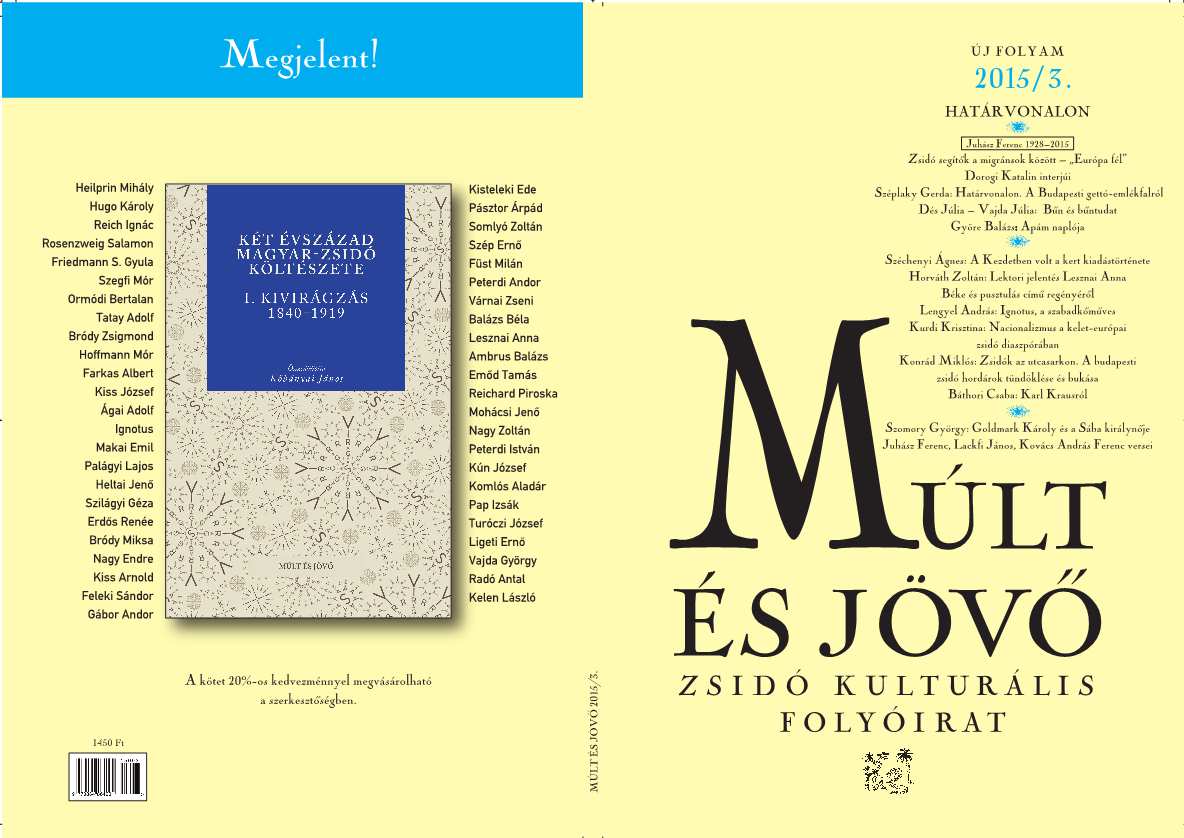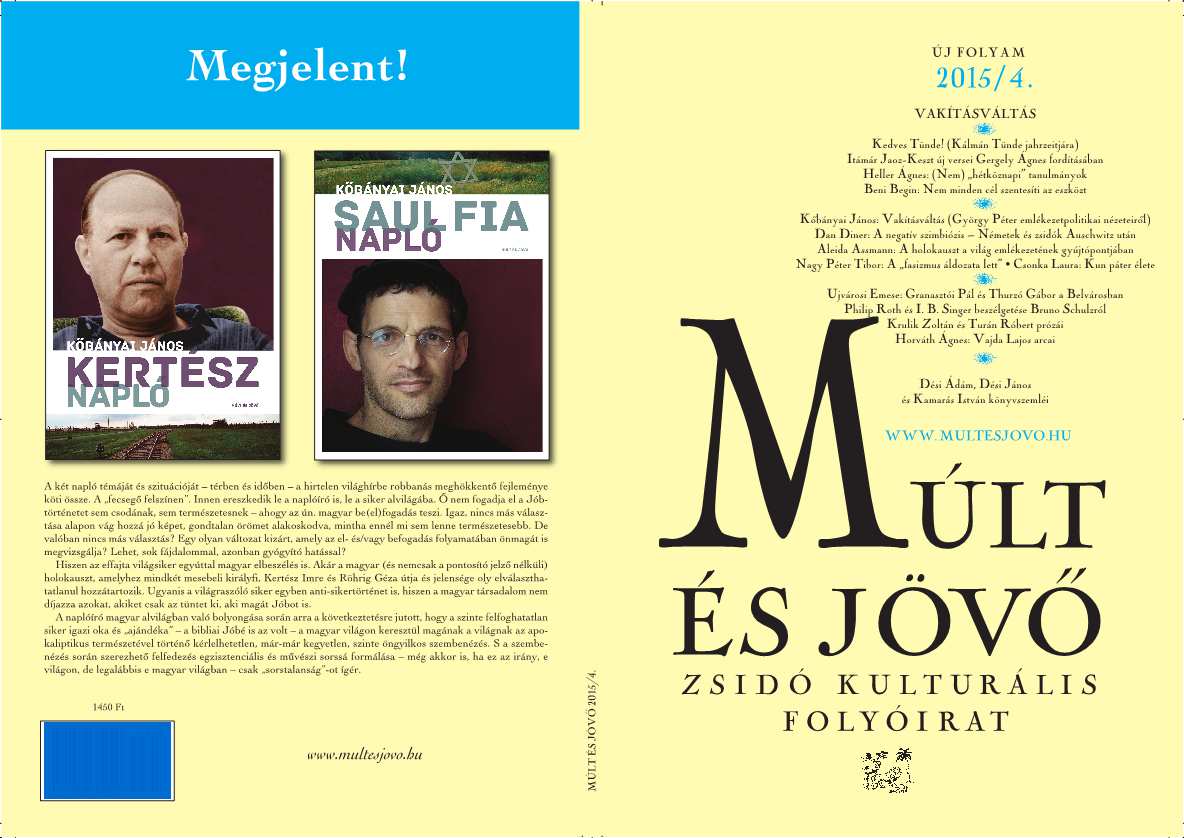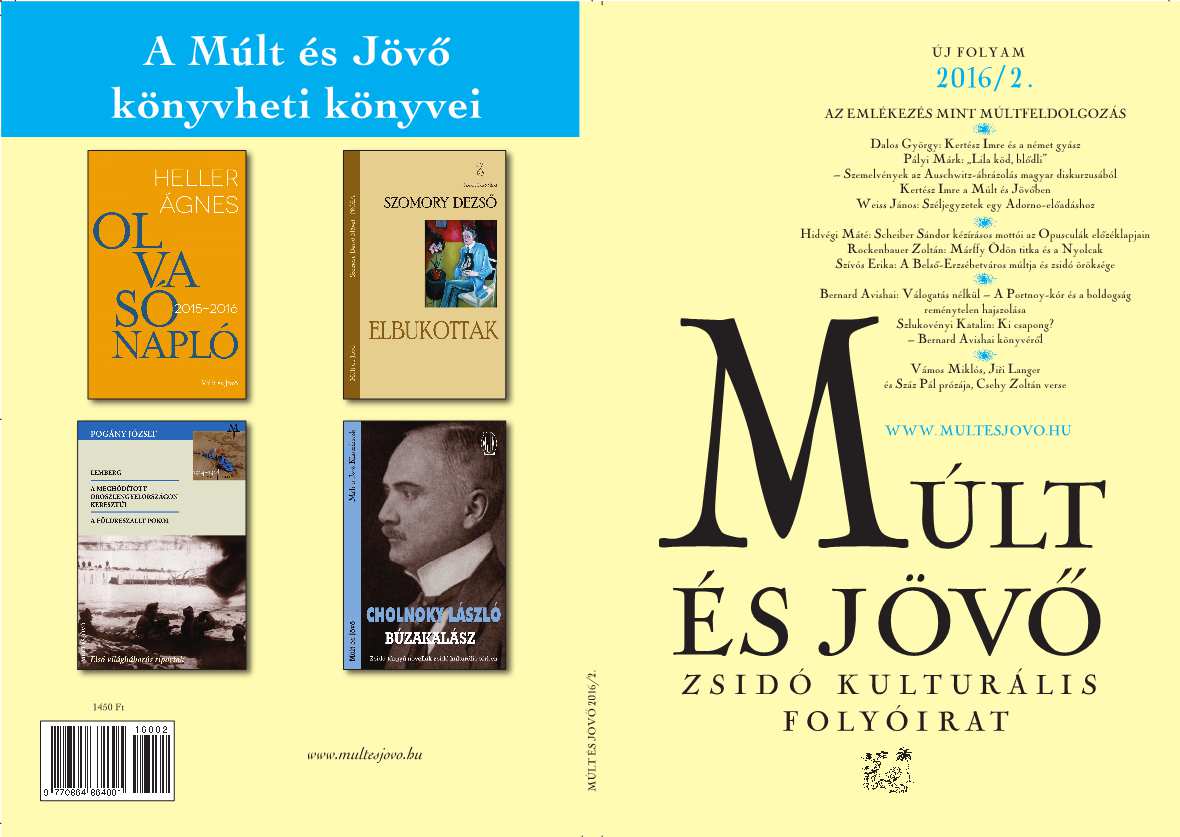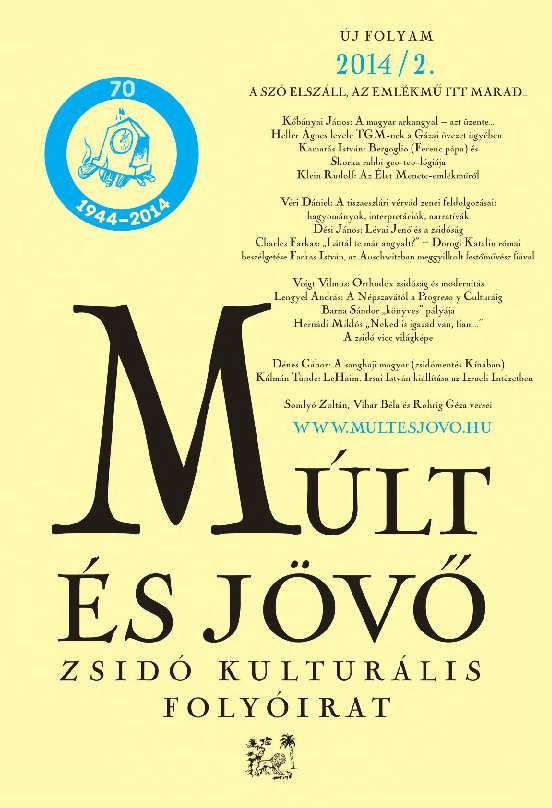We kindly inform you that, as long as the subject affiliation of our 300.000+ articles is in progress, you might get unsufficient or no results on your third level or second level search. In this case, please broaden your search criteria.

A tragikus sorsú, fiatalon meggyilkolt Salamon Ernő életét az irodalomtörténészek alaposan feltárták már a második világháborút követô évtizedekben, versei pedig kiadásra kerültek több önálló kötetben is. Jelen tanulmányban – talán az eddigi ismeretanyagot kiegészítve és Salamon Ernő halálának 70. évfordulójára emlékezve – kísérletet teszünk egy méltatlanul elfeledett költő pontosabb és hitelesebb ábrázolására, amihez az Illyés-hagyatékban talált levelek szolgáltattak sok, eddig nem ismert adalékot. A Salamon Ernô (és felesége, Huszár Ilona) leveleiben rejlő új ismeretanyag azonban csak akkor érthető meg teljesen, ha előbb visszatekintünk Salamon életének kezdetére és helyszíneire, majd arra a korszakra, amelyben a két költő kapcsolatba került egymással.
More...







This article explores the problem of Judaism in the oeuvre of Leo Strauss (1899-1973) and particularly in his 1962 conference at the University of Chicago delivered under the title of “Why We Remain Jews”. On one hand, Strauss presents the problem of Jewish assimilation in the light of the tension between Judaism as Revelation and philosophy as a reason-founded discipline. On the other hand, this polarity receives a new interpretation when Strauss reads Jewish history as a theologico-political problem. Strauss’s position is determined by his readings of Arabic medieval philosophy as well as by his acceptance of a post-messianic interpretation of Jewish eschatology. Finally, the text presents the hypothesis about the existence of a debate between Strauss’s view of Jewish history and Carl Schmitt’s conception of the biblical katéchon as the political element that gives sense to Western universal history.
More...
In the present paper we intend to rethink the “Jewish question”, in the context of religion’s secularization and the modern nation-state crisis, in Hannah Arendt’s political thought. She writes, on the other hand, in and over the decline of modern nation-states that expel and denationalize both foreign citizens and their own depending on the case. She also thinks as a Jew from birth who suffers persecutions and particularly theorizes on her Jew condition and the future of Judaism before and after the creation of the State of Israel. As we will see during this paper we can identify these three issues all together, particularly in the Zionist experience: modern secularization, decline of the nation-state and the “Jewish question”. And it is from these intertwined elements that we can draw a critical thinking for a politics of pluralism.
More...
The article investigates David Grossman’s To the End of the Land as an intervention into debates on the presence of myth in Israeli society. Do resonances of the Bible in Modern Hebrew perpetuate biblical narratives as constitutive to Israeli collective memory? Do literary references to the Bible dictate the rootedness of Hebrew speakers to the Land? Grossman’s novel discerns the implications of these questions for the political agency of individuals. It does so through the striking adaptation of a motif much frequented in Israeli literature: the Binding of Isaac. The prominent biblical myth is transformed in the novel through a set of interplays: the unusual enactment of the Akedah scene by a matriarch; original exegeses of biblical names; and the merging of several biblical narratives into the novel’s structure. The protagonists reveal their “awareness” of these interplays, when they reflect on the correspondence of their “lives” with various biblical narratives – whose divergence from one another enable them to negotiate the overdetermination of myth in political discourse. The article argues that the novel’s reflective stance on the role of myth in Israeli society is codependent on the philosophy of language that it develops. To the End of the Land features language acquisition, linguistic interferences with Israel’s main vernacular by other languages, word play and semiotic collapse. Through the presentation of linguistic utterances as contingent, associative, subjective and ever-changing, the identification with biblical narratives is rendered volatile. To the End of the Land questions the limits of Israeli literature in redefining the valence of the language in which it is written as well as the ability of literary texts to reshape major conditions for their own reception: collective memory and national motifs.
More...